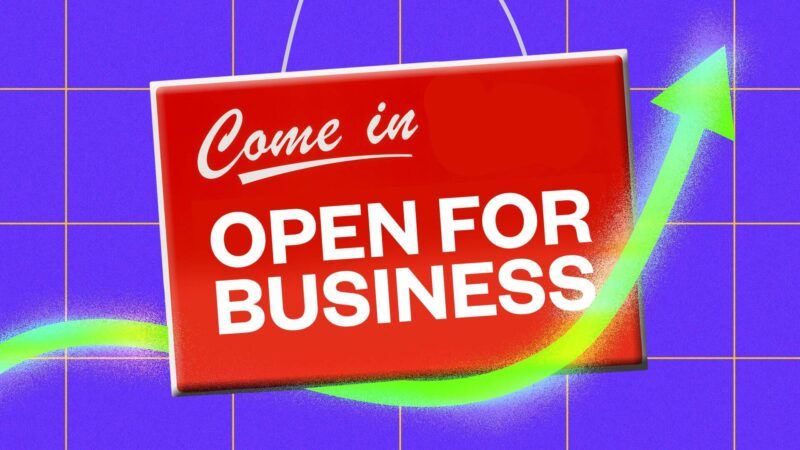The Pandemic's Economic Impact Includes More Americans Starting Their Own Small Businesses
Though the American economy still looks bleak, there are silver linings.

We're now entering year three of the COVID-19 pandemic, and the U.S. economy is still struggling thanks to inflation, supply chain issues, and continually bad jobs numbers. However, small business creation has been an unexpected economic bright spot since the pandemic began, and pandemic-era entrepreneurship could be an important part of the economic recovery in 2022.
In 2021 (excluding data for December, which the U.S. Census Bureau has not yet released), an average of around 452,000 new business applications were filed monthly. That's a significant increase compared to 2019, when an average of roughly 293,000 new business applications were filed each month. Those numbers dipped in March and April 2020 before catapulting to over 550,000 in July 2020 and remaining above 2019 levels through the end of the year.
The 2021 data look especially promising because new businesses tend to hire employees. From January 2021 through the end of Q3, 1.4 million applications were filed to form businesses likely to hire workers, more than any other comparable recorded period. These so-called high propensity applications have been strong throughout the pandemic, with over 400,000 more filings in 2021 compared to the same point in 2019, and 255,000 more than at the same time in 2020.
A December 2021 Intuit QuickBooks survey predicted that up to 17 million new small businesses may be formed in 2022. Of those 17 million, Intuit estimated that 5.6 million will hire employees. Over 80 percent of survey respondents who were already considering opening a business reported that COVID-19 had sped up their plans.
"When the pandemic hit, we saw an unprecedented number of new businesses formed as millions of people spotted new opportunities brought on by the 'new normal' or reevaluated their priorities," explained Alex Chriss, executive vice president and general manager of the Small Business and Self-Employed Group at Intuit.
The nature of pandemic-era work has likely made it easier for entrepreneurial people to launch their ventures. "Compared to previous recessions, potential entrepreneurs now have more widely available broadband, greater digital fluency, and a more mature e-commerce marketplace," wrote Jeremy Hartman and Joseph Parilla for the Brookings Institution. "Today, it's much easier to translate an artisanal hobby or creative passion project into an online venture than it was in 2008." Online microbusinesses ballooned by 2.8 million in 2020 compared to 2019 levels, Hartman and Parilla note, and ownership of such firms "grew fastest among groups hit hardest by the economic fallout" of the pandemic's onset.
It's important to note that this growth comes on the heels of great pandemic-era devastation to America's preexisting small businesses. In the first year of the pandemic, roughly 200,000 establishments above historical averages closed permanently. Millions of small businesses had closed as of 2021 when taking temporary closures into account. Though not as severe as earlier estimates had predicted, this wave of difficulties undoubtedly sent the signal that the pandemic and government-imposed restrictions on businesses would not be kind to would-be entrepreneurs.
That's why it's reassuring to see such optimism so clearly fleshed out in business application numbers. Reason's Eric Boehm previously reported on pandemic-era small business creation, writing that "the number of new startups in the pipeline isn't just a silver lining," but "a way forward." Unlike the Great Recession, which Boehm notes "was the result of a banking collapse and credit crunch that made it more difficult for startups to borrow money," the economic climate is different this time around. There's more money flowing to startups, which will likely contribute to a more even recovery than that which followed 2008.
Small business creation isn't the silver bullet for our economic woes, but these numbers show that millions of Americans have taken stock of a volatile world and decided to take on the risks of entrepreneurship regardless. The American economy in 2022 will be better for their efforts.


Show Comments (22)